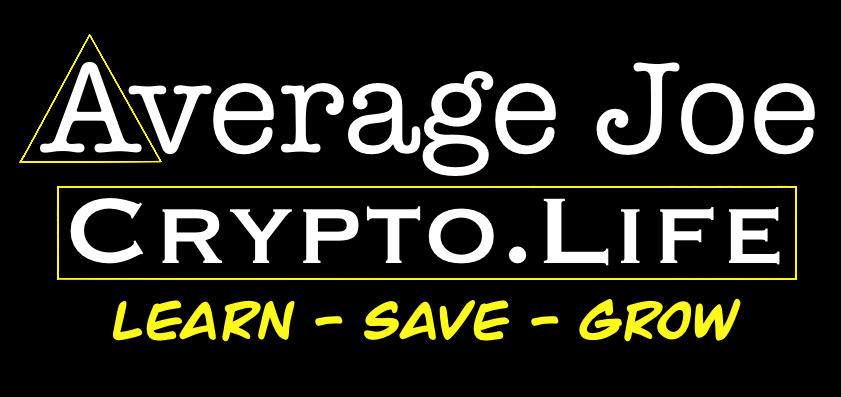Understanding crypto terminology is essential for navigating the world of cryptocurrencies. Here are some key terms commonly used in crypto, along with their meanings and uses:
1. Blockchain
- Definition: A decentralized, distributed ledger that records all transactions across a network of computers. It’s the technology underlying most cryptocurrencies.
- Use: Blockchain enables secure, transparent, and tamper-resistant transactions without the need for a central authority.
2. Wallet
- Definition: A digital tool that stores your cryptocurrencies. Wallets can be hot (connected to the internet) or cold (offline storage).
- Use: Wallets allow you to store, send, and receive crypto assets securely. Examples include MetaMask (hot wallet) and Ledger (cold wallet).
3. Private Key & Public Key
- Private Key: A secret alphanumeric code that allows access to and control over your cryptocurrency.
- Public Key: A code associated with your wallet address, used for receiving funds.
- Use: Private keys must be kept secure, as anyone with your private key can access your funds. The public key can be safely shared for transactions.
4. Exchange
- Definition: A platform for buying, selling, and trading cryptocurrencies. Some are centralized (like Binance), while others are decentralized (like Uniswap).
- Use: Exchanges allow users to convert fiat money (like USD) into crypto or trade different cryptocurrencies.
5. Altcoin
- Definition: Any cryptocurrency other than Bitcoin. Examples include Ethereum, Cardano, and Solana.
- Use: Altcoins are alternatives to Bitcoin, each with unique features, purposes, and applications.
6. Stablecoin
- Definition: A cryptocurrency tied to a stable asset, such as the US dollar, to reduce volatility. Examples include USDT (Tether) and USDC.
- Use: Stablecoins are used for transactions, trading, and as a safe haven during volatile market periods.
7. DeFi (Decentralized Finance)
- Definition: Financial services built on blockchain networks that operate without intermediaries, like banks.
- Use: DeFi enables users to lend, borrow, trade, and earn interest on crypto assets using smart contracts.
8. NFT (Non-Fungible Token)
- Definition: A unique digital asset representing ownership of a specific item, such as digital art, music, or collectibles.
- Use: NFTs are used for verifying ownership of digital or physical assets, especially in art and gaming.
9. Gas Fees
- Definition: Fees paid to process transactions on a blockchain network, especially Ethereum.
- Use: Gas fees are paid to miners or validators to prioritize and verify transactions, often based on network demand.
10. Smart Contract
- Definition: Self-executing contracts with the terms of the agreement directly written into code on a blockchain.
- Use: Smart contracts enable automated, secure transactions and are the foundation of DeFi and NFT platforms.
11. Mining
- Definition: The process of validating and recording transactions on the blockchain, often using complex computing power to solve cryptographic problems.
- Use: Mining secures networks like Bitcoin and rewards miners with newly created coins for their work.
12. Staking
- Definition: Locking up cryptocurrency in a wallet to support network operations, earning rewards in return.
- Use: Staking is often used in proof-of-stake (PoS) networks, where participants help validate transactions and maintain the network.
13. Proof of Work (PoW) & Proof of Stake (PoS)
- PoW: A consensus mechanism requiring miners to solve complex problems to validate transactions (used by Bitcoin).
- PoS: A consensus mechanism where validators lock up coins to participate in transaction validation (used by Ethereum 2.0 and Cardano).
- Use: Both PoW and PoS are ways of securing blockchain networks, but PoS is more energy-efficient.
14. HODL
- Definition: A slang term for “hold,” originating from a typo in a forum post. It has since evolved to mean “Hold On for Dear Life.”
- Use: HODL is often used by investors who plan to hold their crypto through market volatility rather than selling.
15. FOMO (Fear of Missing Out)
- Definition: The feeling of anxiety that you’ll miss a profitable opportunity, commonly seen in volatile crypto markets.
- Use: FOMO can lead to impulsive buying decisions, often at peak prices, and can drive market behavior.
16. Whale
- Definition: A term for an individual or organization that holds a large amount of a particular cryptocurrency.
- Use: Whales have the potential to influence market prices with large transactions, either buying or selling.
17. ICO (Initial Coin Offering)
- Definition: A fundraising event where new cryptocurrencies are sold to early investors before being publicly available.
- Use: ICOs allow blockchain startups to raise capital by selling a portion of their tokens to the public.
18. Airdrop
- Definition: A marketing strategy where a blockchain project distributes free tokens to wallet holders.
- Use: Airdrops are used to raise awareness of new projects or reward community members.
19. Liquidity Pool
- Definition: A pool of funds contributed by users to facilitate trading on decentralized exchanges.
- Use: Liquidity pools provide necessary liquidity for trading pairs on DEXs (decentralized exchanges) like Uniswap and SushiSwap.
20. DAO (Decentralized Autonomous Organization)
- Definition: An organization governed by smart contracts and community voting, rather than a central authority.
- Use: DAOs allow communities to make decisions collectively on fund allocation, project development, and governance.
Summary
These terms cover the essential concepts and tools in cryptocurrency, from trading basics (like exchanges, wallets, and gas fees) to more advanced applications (like DeFi, NFTs, and DAOs). Understanding these terms will help you make informed decisions, whether you’re just getting started or looking to dive deeper into the crypto ecosystem.
